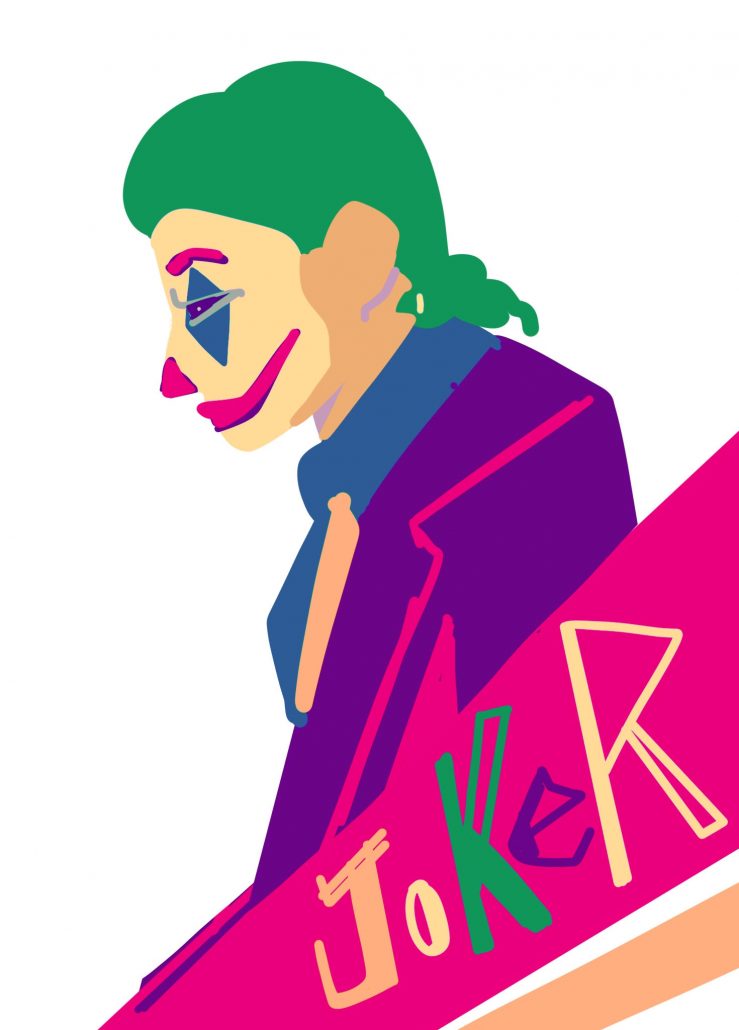The Afterword: While discomforting, ‘Joker’ is worth watching

Monday night, I went to see the highly-anticipated origin story of everyone’s favorite criminal mastermind — Joker. Starring Joaquin Phoenix as failed Gotham City comedian Arthur Fleck — a mentally ill man isolated, ostracized and rejected by society — “Joker” follows Fleck’s descent into madness. The movie, which sold $93.5 million in ticket sales its opening weekend, sparked intense controversy, bringing in mixed reviews and polarizing public opinions.
According to Variety, “the overall consensus seemed to be that even if the film was too dark and violent to truly enjoy, Phoenix’s performance alone was worthy of Oscar recognition.” I’d like to add a similar sentiment: Not only did I overwhelmingly enjoy the film, but I also think it was one of the most insightful and significant movies of the year.
I agree that “Joker” makes viewers uncomfortable — in fact, discomfort was at the crux of my viewing experience. Phoenix made me squirm in my seat and made my skin crawl; he made me feel disgusted and distressed as he pulled us into his darkness. But I don’t think that’s where the widespread sense of “discomfort” is rooted. I think it is rooted in the fact that evil is not parsimonious — meaning, the simplest answer is not always the best one — and I think a lot of people have a really hard time reconciling that. I think, when it comes to the bad guys (both real and fictional), it is easy and convenient to categorically vilify them. On the other hand, to see the bad guys as three-dimensional and nuanced, as real human beings — that’s where the challenge lies.
“Joker” is a testament to the fact that people do not emerge from a vacuum — even the ones that do terrible, unimaginable things. Fleck’s downward spiral was part genetics, part shitty environment and part simple bad luck. While his life is set in the fictional city of Gotham, there is no lack of real-world social commentary. His story speaks to the cycle of abuse and the consequences of lax gun laws in the United States — a disastrous domino effect set into motion by inadequate government health services that abandon the poor and the mentally ill. When you consider that serial killing spiked in the ‘70s and ‘80s, the pattern feels even more telling. By the time Fleck turns to violence, you may be appalled by his choices, but you see the inevitable progression that leads up to them. It feels grimly formulaic.
“Joker” effectively breaks down the mechanisms of how individuals so disillusioned with and enraged at society reach their breaking point — specifically, in contemporary America. While Fleck’s character isn’t representative of the vast majority of people with mental illness, he is representative of a small yet culturally significant demographic. No one is asking you to excuse or even sympathize with a serial killer but to see how some of them come to be. To start unraveling the mess of factors into identifiable triggers and signs. To understand that oftentimes, the fate of people like Fleck can be co-authored by their environment.
For those who have seen the film, let me ask you this: Is Arthur Fleck mad or bad? Victim or murderer? The abuser or the abused? Or is he both? It’s not such a simple question when it is put into absolute terms.
At the climax of “Joker,” when Fleck is a guest on Murray Franklin (Robert De Niro)’s talk show, he screams in anger, “You never think about what it’s like to be the other guy.” That line made me sit back and pause; I found myself reflecting on the fact that we are now more than ever submerged in a culture of “us vs. them.” And I reject the notion that simplifying or straw-manning the Other will make it any easier to understand them. I think we can all benefit from the nuance and multidimensionality, the film imparts. I think we can all benefit from thinking like “the other guy.”
At its core, “Joker” is a movie about the human experience — a rare and decidedly awful one, sure, but still a human experience. The Joker doesn’t have super powers or special gadgets: He is weaponized by a dark past and a lot of rage. This was more than just the origin story of a supervillain; it was also the origin story of many real-life criminals — the faces we see on the news and wonder, “How does someone become that messed up?” “Joker” is a film that is beautiful in its ugliness and eye-opening in its lurid starkness — like a trainwreck that you can’t look away from, no matter how badly you want to.
Rachel McKenzie is a junior writing about pop culture. Her column, “The Afterword,” runs every other Friday.

